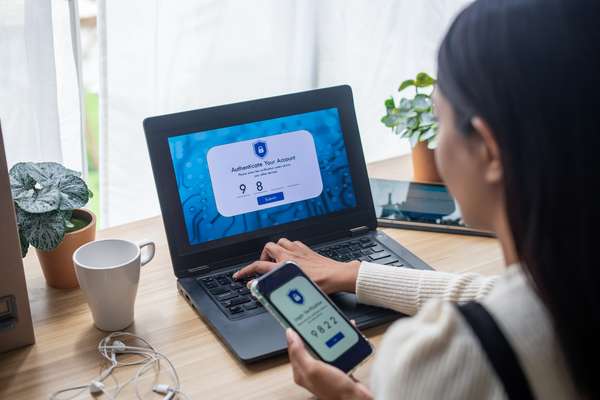Protect yourself online

Strong passwords
Think of passwords as the keys to your online castle. Make them strong and unique, and have a different password for each account. Avoid using easily guessable words like 'password' or '123456'. Instead, mix it up with a combination of letters (both uppercase and lowercase), numbers, and symbols. Or even better – use a passphrase.
Passphrases
A passphrase uses four or more random words as your password. For example, ‘crystal onion clay pretzel’ or 'red house sky train'. The longer the passphrase, the harder it is to crack.
Two-Factor Authentication (2FA)
Ever heard of this? It's like having a second lock on your door. Enable 2FA wherever possible. This adds an extra layer of security by requiring a second form of verification, such as a code sent to your phone, along with your password.
Keep software updated
Don't ignore software update notifications! Updates often contain security patches that fix vulnerabilities hackers could exploit. So, keep your operating system, apps, and antivirus software up to date.
Be wary of suspicious links and emails
Hackers love to trick people with phishing emails and malicious links. If you receive an email from an unknown sender or a message with suspicious links, think twice before clicking. Always verify the sender's identity and hover over links to see their true destination before clicking. How to spot an email scam
Secure Wi-Fi
Your home Wi-Fi is the gateway to your online world. Make sure it's protected with a strong password and encryption. Avoid using public Wi-Fi for sensitive activities like online banking unless you're using a VPN (Virtual Private Network) for added security.
Limit personal information sharing
Be cautious about what you share online. Avoid posting sensitive information like your address, phone number, or full birthdate on social media. Hackers can use this information for identity theft or targeted attacks.
Back up your data
Imagine losing all your precious photos or important documents to a hacker or a computer crash. Ouch! Backup your data regularly to an external hard drive or a cloud storage service. This way, even if something goes wrong, you'll still have your stuff safe and sound.
Use secure websites
When shopping or banking online, make sure you're on a secure website. Look for ‘https://’ at the beginning of the URL and a padlock icon in the address bar. This indicates that your connection is encrypted, keeping your information safe from prying eyes.
Trust your instincts
If something feels off or too good to be true online, it probably is. Trust your instincts and err on the side of caution, and don't hesitate to report suspicious activity.












